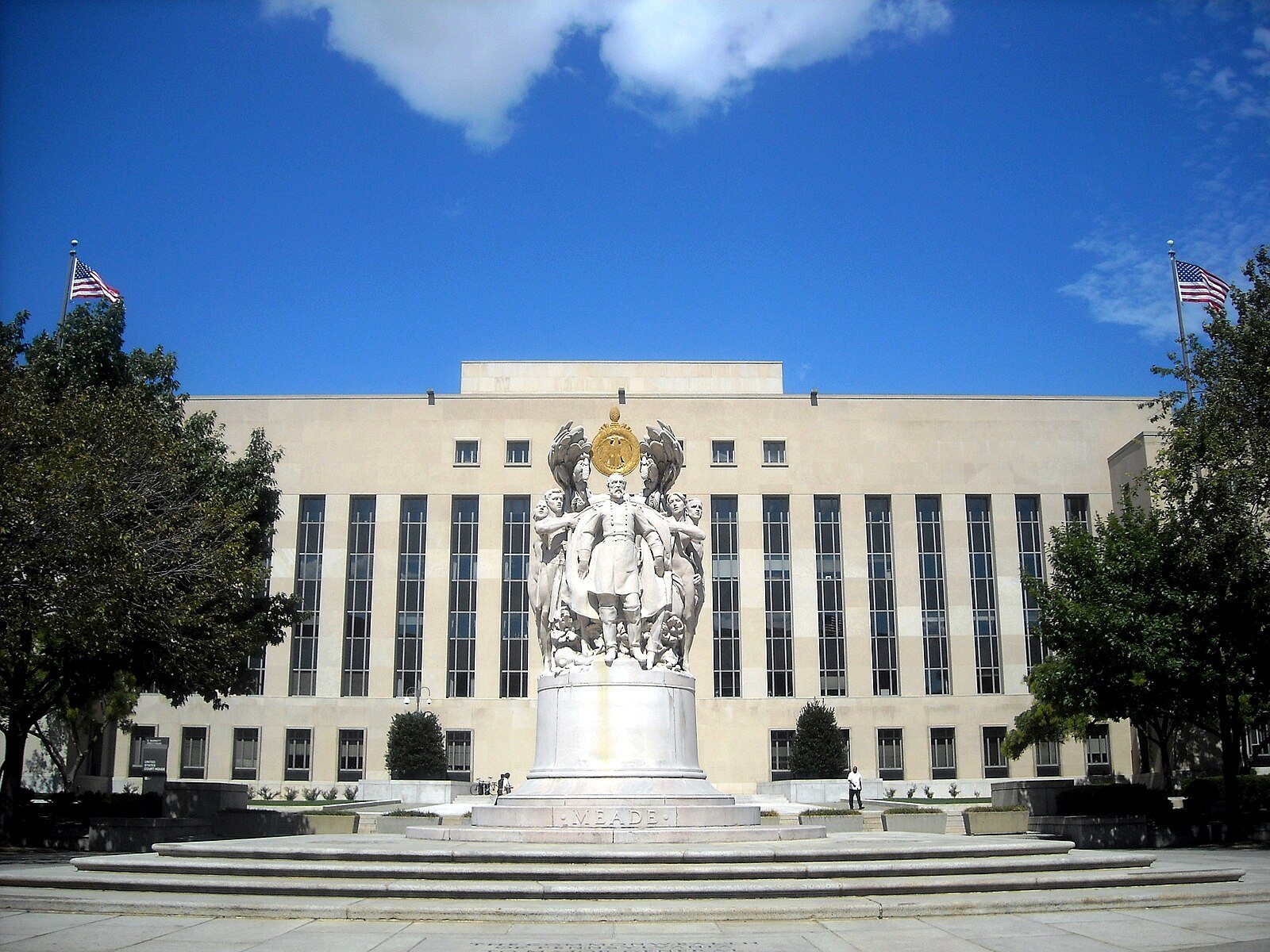What is the Downside of Not Impeaching?
We often talk about impeachable offenses as if they were a tripwire, a trigger that sets in motion a constitutional mechanism to remove guilty government officials. This is a mistaken way to think about the impeachment power, and it is misleading in a couple of important ways. First, it wrongly treats the impeachment process as mechanical. The impeachment power was vested in Congress because the assessment of whether impeachable offenses have been committed and what actions ought to be taken ineluctably requires political judgment and benefits from public responsiveness.
Published by The Lawfare Institute
in Cooperation With

We often talk about impeachable offenses as if they were a tripwire, a trigger that sets in motion a constitutional mechanism to remove guilty government officials. This is a mistaken way to think about the impeachment power, and it is misleading in a couple of important ways. First, it wrongly treats the impeachment process as mechanical. The impeachment power was vested in Congress because the assessment of whether impeachable offenses have been committed and what actions ought to be taken ineluctably requires political judgment and benefits from public responsiveness. Second, it ignores the ways in which the impeachment power is forward-looking rather than backward-looking. We might intuitively think of impeachable offenses as like criminal offenses for which the offender should receive their just desserts, but the impeachment process is fundamentally a constitutional remedy to a grave political problem. Whether the offending officeholders receive their just desserts is a secondary concern.
If use of the impeachment power is an exercise in forward-looking, political judgment, then it is worth thinking carefully about what the downsides might be of refraining to pursue an impeachment inquiry in the face of impeachable offenses.
For this purpose, let’s lay aside the question of what exactly constitutes high crimes and misdemeanors and whether President Trump has yet committed any. Assume that a majority of the members of Congress—and in particular, the Republicans in Congress—come to the conclusion that the president has committed impeachable offenses. They will then be faced with the open question of what they should do about it.
What are the risks involved in forbearing the pursuit of an impeachment and trial? Let’s break them into three categories: low politics, high politics, and constitutional politics.
Low Politics. It would be naïve to imagine that members of Congress would not take any account of such immediate and normal political calculations as whether pursuing an impeachment would damage the legislators’ own chances of reelection. If Republicans were to choose to rally around the embattled president rather than pursue his impeachment and removal, they would be running some unavoidable political risks. Sheltering the president might well put the party’s ability to retain control of the House of Representatives in the 2018 midterm elections in jeopardy. An incumbent President Trump might be more damaging to GOP fortunes in the 2020 elections than an incumbent President Pence. Several more years of a Trump presidency might impede the Republican policy agenda in ways that a relatively quick change in the White House might not. Obviously such low political considerations should not motivate or justify a decision as grave as presidential impeachment, but they would undoubtedly be factored into any decision on whether to pursue an impeachment that is otherwise justifiable. Although difficult to assess, these sorts of ordinary political calculations are at least familiar to professional politicians and their advisors, who will have to assess those risks as best they can. If they see an impeachable offense, and choose to do nothing about it, will they have regrets about the consequences for themselves and their party?
High Politics. Low politics risks must primarily be considered from a partisan and personal perspective; what is the downside to me and my party? High politics risks, by contrast, must primarily be considered from a national perspective; what is the downside for my country if I were to refrain from pursuing an impeachment? Most centrally, refraining from an impeachment effort means leaving the president in place for the remainder of his term of office. From a high politics perspective, the question is what bad outcomes might follow from declining to remove the president when the opportunity was presented. For many Democratic members of Congress during the Iran-Contra scandal, the risks of damage to the country from pursuing an impeachment seemed to outweigh the risks of damage of refraining from an impeachment. Even if impeachable offenses had been committed, the balance of harms suggested the wisdom of addressing the scandal using other political tools and not putting the country through another presidential impeachment so soon after Watergate.
In some cases, we could easily imagine that little risk would follow taking impeachment off the table. President Bill Clinton might serve as an example: Assuming for purposes of argument that President Clinton committed impeachable offenses, those offenses were relatively self-contained. He was unlikely to make the same or similar errors again if he were allowed to serve out his term. Moreover, he was a generally competent president who could be trusted to exercise the duties of his office in a manner that was within normal bounds of political tolerance.
By contrast, Republican members of Congress concerned about the conduct of President Andrew Johnson worried that his perceived offenses were not self-contained and there was substantial risk that if left alone he would continue a pattern of abuses that the congressional majority thought intolerable. Johnson was saved from conviction in his impeachment trial in part by persuading pivotal members of the Senate that consideration of this downside risk should be set aside. If senators could trust that Johnson had mended his ways, then the decision to acquit and let him remain in office for a few more months became more reasonable.
Members of Congress must now consider whether the concerns about President Trump are more like the concerns about President Clinton or the concerns about President Johnson. Is there reason to believe that absent the intervention of an impeachment, President Trump would continue to engage in actions that would be damaging to the country? If the answer to that question is yes, then the option to impeach and remove becomes more compelling. If the answer is no, then Congress might more usefully expend its energies elsewhere. President Trump’s first few months in office have not inspired confidence that he is about to turn a corner and stop generating self-inflicted wounds, and thus the potential downside of ignoring or tolerating the presence of an impeachable offense is that similar problems will recur.
This consideration is not radically different from what advocates of the use of the Twenty-Fifth Amendment to remove an “unfit” president would want us to take into account. The difficulty with the Twenty-Fifth Amendment option is not that it too can be forward-looking, but that it does not require the presence of a demonstrable impeachable offense to initiate or a deliberative public process to execute.
Constitutional Politics. Finally, if members of Congress were to refrain from acting on impeachable offenses, there are a set of potential downsides for the constitutional system as a whole. The most compelling reason for Congress to act is that only such action would set the system aright. If an official is abusing their constitutional powers, impeachment and removal might be the most effective means for preventing further abuses. The more common concern is not that the officer in the crosshairs of a potential impeachment might continue to engage in impeachable offenses in the future if left alone, but that the officer will set a bad example for others. Indeed, the past sins of the officer might be so severe that they leave a permanent stain that cannot be removed with time. The individual who has committed an impeachable offense may no longer be able to effectively perform the duties of his or her office, and thus resignation or removal might be the only remedy for moving out of the long-shadow of a past notorious offense.
The argument that President Clinton had sullied the dignity of his office fell close to this concern. The office could only be restored, from that perspective, by his departure. Similarly, a judge who had once engaged in unethical behavior might find that all future actions were tainted by memory of that event and as a consequence their ability to effectively exercise the duties of their office would be compromised. A Congress that refused to remove a judge in that situation risked enduring damage to the integrity of the judiciary.
If Congress tolerates officers who commit high crimes and misdemeanors, it sends a signal to other officers that those crimes are not beyond the pale. Often, the political conventions that the officer is violating are well known and well established. A judge who accepts bribes is not taking advantage of a legal grey area; he is violating the basic expectations regarding judicial good behavior. If Congress passively tolerates such violations of political norms, there is a risk that those norms will be gradually eroded over time. In other cases, the norms are not so well established, and an impeachment can do shift and consolidate constitutional conventions so as to send a message to all future political actors as to what good behavior should look like going forward.
The impeachment of Justice Samuel Chase for his partisan behavior on the bench in the run-up to the election of 1800, contributed to establishing a new norm against political partisanship by federal judges. Ignoring Chase’s behavior would have been an open invitation to judges to behave similarly in future electoral contests. The Jeffersonians seized the opportunity to make an example of Chase and clarify how the constitutional system should work going forward. His actual removal from the bench was unnecessary to accomplish that goal: while he was ultimately acquitted, the impeachment itself did most of the work.
Knowing the facts about what happened in a particular scandal is important but can hardly determine whether Congress should move forward with an impeachment effort. This requires political judgment, and is perhaps one of the most important decisions that a member of Congress can make. The dangers and challenges of moving forward with an impeachment effort are often obvious, but members of Congress should think carefully as well about the risks involved in refusing to pursue an impeachment when one might be warranted. The threat of impeachment is a big stick that can help sustain constitutional norms and deter constitutional abuses. If that stick is put on a shelf and never put into play, Congress might find that some who hold office an office of trust under the United States are emboldened to behave badly.


.jpg?sfvrsn=407c2736_6)


